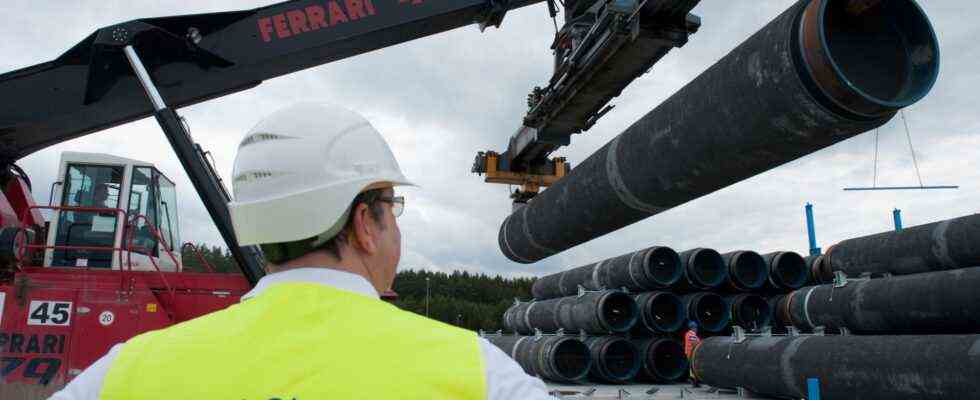analysis
Status: 07/22/2021 1:58 p.m.
The dispute over the Baltic Sea pipeline has put a heavy strain on relations with the USA. Is everything off the table with the compromise? And what does that mean for Merkel and her possible successors in the Chancellery?
Shortly before her summer break, Angela Merkel ticked a problem project – at least for the time being. Nord Stream 2 was not their idea. The controversial gas pipeline from Russia to Mecklenburg-Western Pomerania was initiated by its predecessor Gerhard Schröder. However, the criticism and the upheavals preoccupied her longer than she would have liked.
For a long time, the Chancellor described the pipeline as a purely economic project. That didn’t seem too convincing. During her visit to Washington, she and US President Joe Biden cleared the way for the agreement that has now been reached. It couldn’t get much more political. For Merkel, the agreement is “a good step that also required a willingness to compromise on both sides”. However, she did not overcome all the differences, said the Chancellor at her summer press conference in the morning.
Priority on the transatlantic relationship
It was an extremely difficult foreign policy decision. A mixture of many factors. Former US President Donald Trump threatened extraterritorial sanctions against companies involved in the construction. Give in to that? Hard to imagine. On the other hand, the case of the Kremlin opponent Alexei Navalny had put even more strain on relations with Russia. And finally, Ukraine also demanded security guarantees from the West.
In the end, Merkel set the priority on the transatlantic relationship. Biden had made an advance payment. He initially suspended the sanctions against Nord Stream 2 – against opposition from both parties in Congress. Chancellor and Foreign Minister Heiko Maas are relying on this breeding ground for renewed German-American relations.
What are the assurances worth?
What about Ukraine? She gets assurances on paper. Should Russia use energy as a weapon, Germany will “act at national level” and “push for effective measures including sanctions” in the EU. The goal is clearly formulated. But what specific actions this would trigger is less clear. One is “not completely defenseless” stressed Merkel in her summer press conference.
A declaration of intent is also written in the gas transit agreement. The federal government should use “all available means of influence” in order to achieve an extension. Ukraine is not convinced. This is shown by the first reactions from Kiev. But there are also critical tones from Poland and the Baltic States. And so Merkel is also confronted with the accusation in Germany that she did not sufficiently involve EU partners such as Poland or the Baltic States in the Nord Stream 2 issue.
One less issue in the election campaign
After yesterday’s agreement, the pipeline is likely to play a lesser role in the federal election campaign. So far, differences have been noticeable among those who would like to move into the Chancellery. The green candidate for Chancellor Annalena Baerbock had called for the Baltic Sea pipeline to be stopped immediately. This option seems off the table. Union candidate Armin Laschet and SPD challenger Olaf Scholz, on the other hand, threatened consequences in the event that Putin pressures Ukraine after Nord Stream 2 went into operation.
Nord Stream 2 will probably be finished. The joint German-American declaration is on the table. Will Putin test how serious the warnings are? In the short term – in the coming months – this does not seem likely. Should it happen afterwards, it would at least not be Angela Merkel’s problem anymore.
Christian Feld, ARD Berlin, on the reactions to the agreement on Nord Stream 2
Tagesschau24 10:00 a.m., July 22nd, 2021

